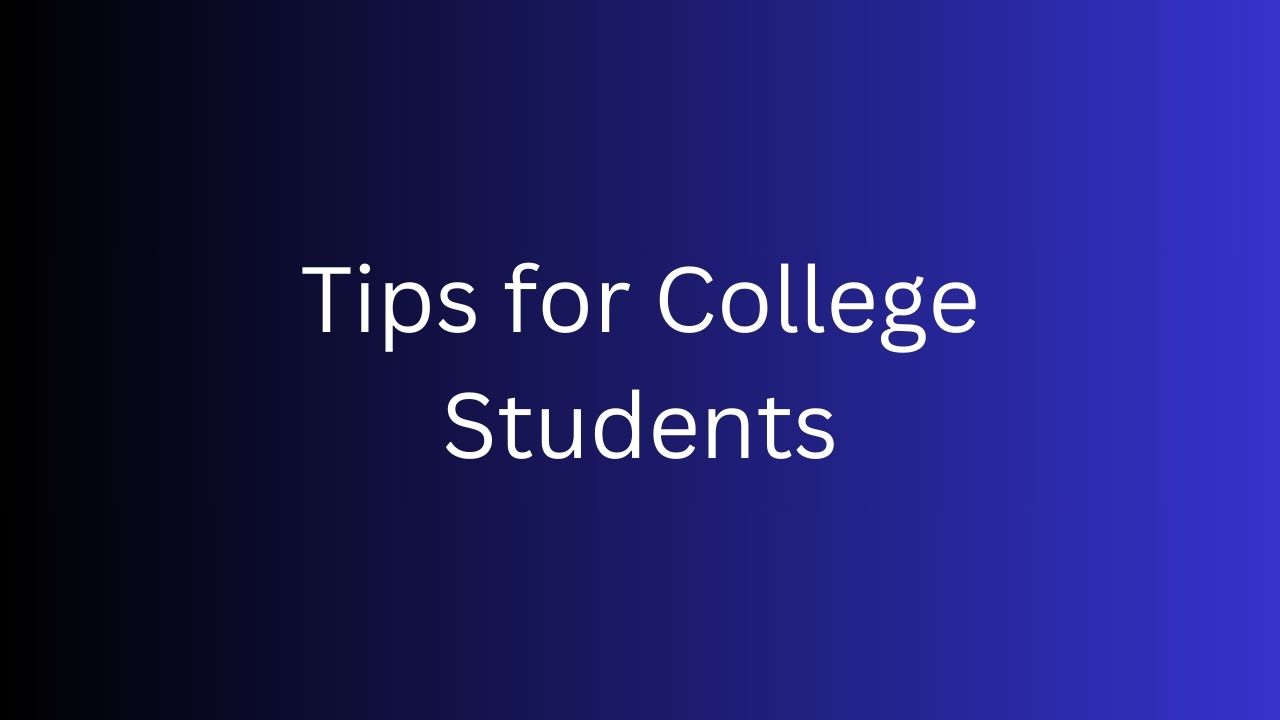This article delves into social media for college students, providing practical tips to navigate this dynamic landscape effectively.
The Role of Social Media in the Lives of College Students

Social media plays a multifaceted role in the lives of college students. It serves as a primary channel for communication, enabling them to stay connected with friends, family, and classmates. It also provides:
- A platform for self-expression.
- Allowing students to share their thoughts and experiences.
- Creative endeavors.
Additionally, social media has become an essential tool for academic research, collaboration, and professional networking.
Importance of Cultivating a Positive Online Presence
Online presence has significantly shaped personal and professional reputations in an increasingly interconnected world. College students should cultivate a positive online presence reflecting professionalism, integrity, and aspirations.
This involves being mindful of the content they share, engaging in respectful interactions, and presenting themselves in a manner that aligns with their future goals.
Practical Tips for Utilizing Social Media for College Students
This article aims to empower college students to utilize social media effectively, maximizing its benefits while minimizing potential risks.
It provides practical tips and strategies for personal branding, privacy and security, networking, job searching, academic collaboration, time management, online etiquette, and staying informed about social media trends.
1. Personal Branding for College Students
A personal brand is the unique identity and impression an individual creates and maintains online.
For college students, cultivating a strong personal brand is crucial for showcasing their skills, achievements, and aspirations to potential employers, educational institutions, and mentors.
2. Tips on Presenting Oneself Professionally Online
To present themselves professionally online, college students should carefully consider the content they share, the language they use, and the overall tone of their online presence.
They should maintain a consistent and professional profile across all platforms, ensuring their online persona aligns with their desired career trajectory.
3. Leveraging Social Media to Showcase Skills
Social media provides a valuable platform for college students to showcase their skills, achievements, and aspirations.
They can share relevant academic projects, extracurricular activities, volunteer experiences, and professional development opportunities.
Creating a portfolio website or blog can enhance their online presence and demonstrate their expertise.
Privacy and Security Understanding for College Students
College students must understand the privacy settings on various social media platforms and utilize them effectively to protect their personal information.
They should be selective about who they connect with online and carefully consider the visibility of their posts and shared knowledge.
1. Strategies for Safeguarding Personal Information
College students should avoid sharing sensitive details such as their home address, phone number, or financial information on social media to safeguard their data.
They should be wary of phishing scams and suspicious links and create strong passwords unique to each platform.
2. Educating College Students about Potential Risks and Best Practices
Educating college students about the potential risks associated with social media is essential.
They should be aware of cyberbullying, privacy breaches, and the impact of their online behavior on their reputation and future opportunities.
Providing them with clear guidelines and best practices can help them navigate the digital landscape safely and responsibly.
Networking and Building Connections
LinkedIn serves as a powerful platform for professional networking. College students can create a comprehensive profile highlighting their skills, education, and experiences.
They can join relevant groups, connect with industry professionals, and engage in meaningful conversations to expand their network and explore potential career opportunities.
1. Engaging with Peers, Alumni, and Industry Professionals
Social media provides a unique opportunity for college students to engage with coequals, alumni, and industry professionals.
They can participate in online discussions, follow thought leaders, and seek mentorship from experienced individuals.
Building these connections can open doors to internships, job opportunities, and valuable insights into the professional world.
2. Building a Supportive and Diverse Online Network
Cultivating a diverse online network is essential for college students.
They should connect with individuals from various backgrounds, academic disciplines, and professional fields.
This exposure to different perspectives and experiences can broaden their horizons and enhance their personal and professional growth.
Job Searching and Internship Opportunities For College Students
Social media can be a valuable tool for job and internship searches.

College students can utilize platforms like LinkedIn to follow companies of interest, engage with recruiters, and apply for positions directly through the platform.
They can also join relevant groups and communities to stay informed about job openings and network with professionals in their field.
1. Showcasing Academic Achievements and Extracurricular Activities
When seeking job opportunities, college students should showcase their academic achievements and extracurricular activities on social media.
They can highlight relevant coursework, projects, awards, and leadership roles to demonstrate their skills, interests, and potential contributions to the organization.
2. Following and Engaging with Companies of Interest
Following and engaging with companies of interest on social media can provide valuable insights into their culture, values, and work environment.
College students can participate in company-hosted discussions, attend virtual events, and share relevant content to demonstrate their enthusiasm and alignment with the company’s brand.
Academic Collaboration
Social media can facilitate academic discussions and collaboration among college students.
They can join online forums, groups, and communities dedicated to their field of study.
These platforms allow them to share resources, ask questions, and engage in peer-to-peer learning.
1. Joining Relevant Groups and Communities
Joining relevant online groups and communities can provide a wealth of academic resources and support for college students.
These communities often host virtual discussions, webinars, and study groups, offering opportunities to connect with peers, collaborate on projects, and gain insights from experts.
2. Sharing Resources and Insights with Classmates
Sharing resources and insights with classmates through social media can enhance the learning experience.
College students can create study guides, share relevant articles, and provide peer-to-peer feedback, fostering a collaborative and supportive learning environment.
Balancing Personal and Professional Content
College students should exercise discretion when sharing personal experiences on social media.
While sharing personal stories and interests is acceptable, they should maintain a balance and avoid posting anything that could negatively impact their professional reputation.
1. Balance between Personal and Academic/Professional Content
Finding the right balance between personal and academic/professional content requires careful consideration.
College students can create separate profiles or use privacy settings to control the audience for their different types of posts.
They should also be mindful of their tone and language, ensuring that their online presence aligns with their professional goals.
2. Understanding the Potential Impact of Personal Content on Future Opportunities
College students should know that their social media content can have long-term implications for future opportunities.
Employers and educational institutions often review candidates’ online presence to assess their character, judgment, and overall suitability for the position or program.
Therefore, it is crucial to maintain a professional and responsible online presence.
Time Management Social Media for Students
Social media can be a significant time drain if not managed effectively. College students should set boundaries for social media usage, allocating specific times for checking and interacting with online platforms.
They should also prioritize offline activities, such as studying, socializing with friends and family, and engaging in hobbies and extracurricular activities.
1. Creating a Schedule for Social Media Usage
Creating a schedule for social media usage can help college students stay organized and avoid distractions.
They can dedicate specific time slots to check notifications, respond to messages, and engage with content.
This structured approach can help them manage their online presence without compromising their academic and personal commitments.
2. Prioritizing Offline Activities and Self-Care
Prioritizing offline activities and self-care is essential for maintaining a healthy college-life balance.
College students should dedicate time to physical exercise, relaxation, and pursuing personal interests outside of the social media realm.
This balance can help them manage stress, maintain overall well-being, and avoid the potential negative effects of excessive social media engagement.
Online Manners
Social media interactions should be conducted with respect and positivity.
College students should avoid cyberbullying, negative comments, and spreading misinformation.
They should engage in constructive discussions, show empathy, and contribute to a positive online environment.
1. Understanding the Impact of Online Relationships
Online behavior can have a significant impact on personal and professional relationships.
College students should be mindful of how their online actions can be perceived by others and maintain a consistent level of professionalism across all platforms.
2. Navigating Disagreements and Discussions with Diplomacy
College students should respectfully approach disagreements and discussions, avoiding personal attacks or inflammatory language.
They should listen to opposing viewpoints, constructively present their opinions, and strive to find common ground.
Social Media Challenges and Solutions
College students face various challenges on social media, including cyberbullying, privacy concerns, and the pressure to maintain a perfect online persona.
Addressing these challenges head-on and developing strategies to navigate them effectively is important.
1. Providing Solutions and Guidance for Overcoming Barriers
To overcome obstacles on social media, college students can seek support from peers, mentors, and counseling services.
They can also utilize privacy settings, report cyberbullying incidents, and practice self-awareness to maintain a positive and healthy online presence.
2. Encouraging a Supportive and Responsible Online Community
Promoting a supportive and responsible online community is crucial for fostering a positive social media experience for college students.
Encouraging respectful interactions, promoting digital citizenship, and educating students about online safety can create a more inclusive and empowering online environment.
Staying Informed and Adapting to Trends
College students should stay informed about evolving social media trends, emerging platforms, and potential risks associated with new technologies.
This awareness can help them make informed decisions about their online presence and adapt their strategies accordingly.
1. Embracing New Platforms and Features Responsibly
When exploring new social media platforms, college students should be cautious and mindful of privacy settings and potential security risks.
They should prioritize platforms that align with their interests and goals and use them responsibly to enhance their online experience.
2. Adapting Strategies to Changes in the Social Media Landscape
As the social media landscape evolves, college students should adapt their strategies to remain relevant and effective.
They should stay updated on new trends, adjust their content accordingly, and continuously evaluate the impact of social media on their personal and professional lives.
Conclusion – Social Media for College Students
Social media presents many opportunities for college students to connect, learn, and explore potential career paths.
By implementing the practical tips outlined in this article, college students can maximize the benefits of social media while minimizing potential risks.
Cultivating a positive online presence, prioritizing academic and professional goals, and practicing responsible online behavior are essential for maximizing the potential of social media in college life. Remember, social media is a powerful tool that can be harnessed for personal and professional growth when used effectively and responsibly. Read More about Social media Tips and Tricks.
